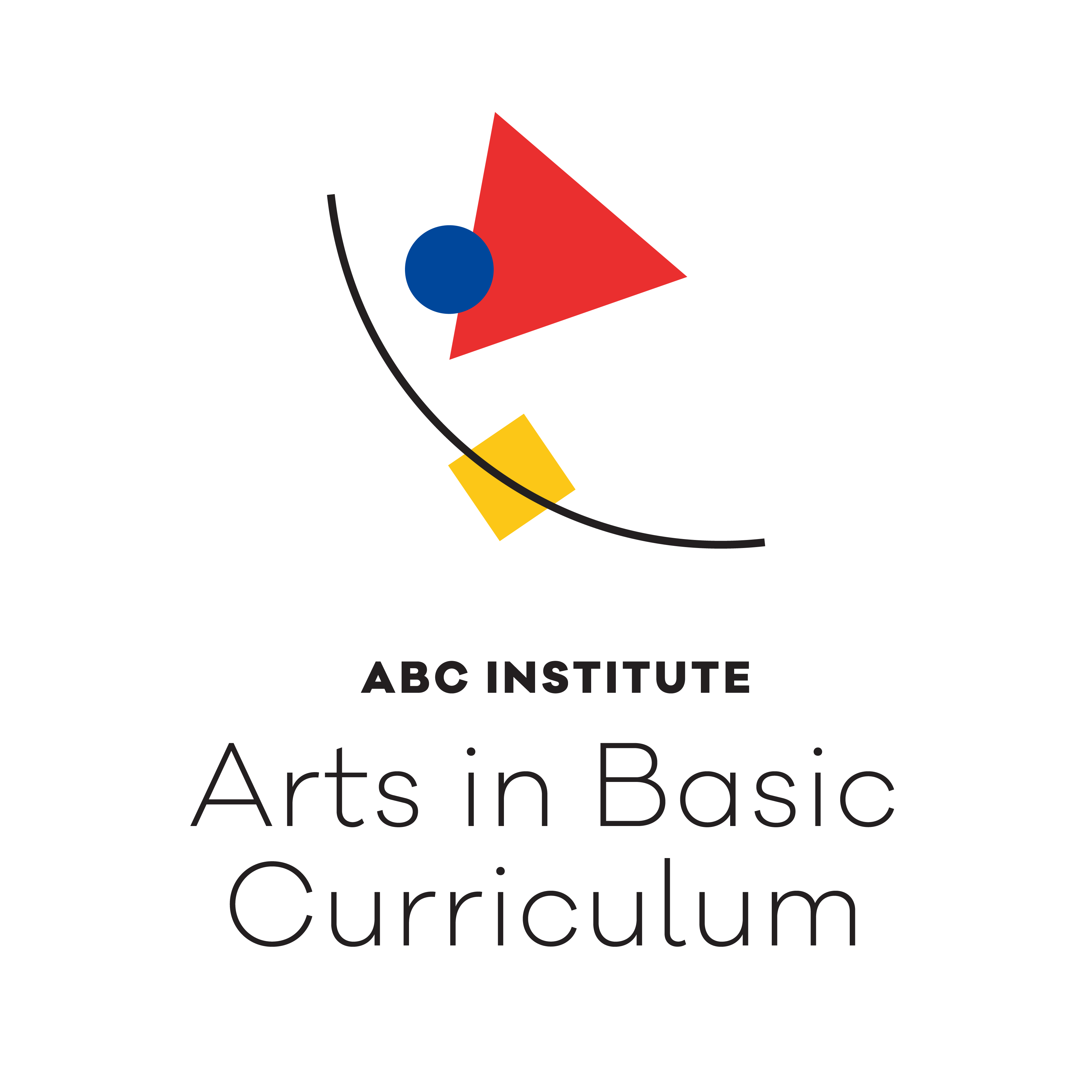How to Become an ABC School
The Development Process to Become an ABC School
Thank you for your interest to become an ABC Certified School. ABC Certified Schools maintain an arts-rich learning environment. They are unique in that arts education is not only appreciated but valued as integral to the school’s vision of student development.
Being an ABC School is a certification process, determined by its demonstrated, strategic commitments of practice. The South Carolina Arts Commission (SCAC) ABC Advancement Grant is to support ABC Certified Schools in their commitments. There are several SCAC funding opportunities to support equitable access to quality arts education, ABC Certification (and subsequent ABC Advancement Grant) is only one.
Each school’s development process is unique, yet ABC Institute has learned what components are crucial to the process of developing an ABC School from ABC Schools that have successfully sustained their commitments
What follows are the common steps of the ABC School development process. They are presented in the order most commonly recorded, however, should not be viewed as a linear, sequential checklist. For a printable version of the Steps to Develop an ABC Certified School with examples and details, click here.
*Please be patient as this page remains under construction.

Contact ABC Institute
Contact ABC Institute to set up an initial meeting to discuss your school’s current commitment to arts education, discuss your school’s commitment in relationship to the ABC School Certification Guidelines and Application, and determine a unique set of next steps based on the development components listed below.
In preparation, ABC Institute suggests all interested stakeholders read the ABC School Certification Guidelines and Application document before the scheduled meeting.

Determine Next Steps
Build an awareness and commitment for arts education within the school community including:
• District and school administrators
• District and school arts educators
• School board members
• School or district grant writing committee
• Parents, grandparents
• PTA/PTO representative
• Classroom teachers

Identify and Engage Partners
Start small. As support is being cultivated, seize opportunities to engage with partners. Some examples from ABC Schools are:
• Collaborate with a local/regional organization
• Apply for teacher-level support grants
• Facilitate a creative learning experience for colleagues
• Invite stakeholders to assist in cultivating support and serve on a Strategic Arts Education Planning Committee.

Form a Strategic Arts Education Planning Committee
A diverse group of stakeholders ensures that multiple perspectives are heard when designing a shared vision. While there is no maximum or minimum, the following stakeholders should be represented:
• Arts and non-arts educators
• School administration
• Parent
• Student
• Community Stakeholder

Conduct Asset and Needs Analysis
In preparation for designing a vision for a school’s future, it is important to determine what resources and assets are currently available and what needs exist.
ABC Institute has tools to assist in this process, such as the Opportunities to Learn Standards and Essential Elements for Arts Infusion Programming.

Develop an Arts Education Strategic Plan
Schools may choose to attend a sponsored strategic planning event, such as
• South Carolina Department of Education’s (SCDE) Strategic Arts Planning Institute in June
• ABC Institute’s Arts Education Leadership Institute (AELI) in July;
• Contract a strategic planning facilitator for their school.

Submit Strategic Plan
Submit the five-year Arts Education Strategic Plan to the school community (faculty and staff, parents, community stakeholders, and district administration) for feedback and approval.
Depending on the amount and type of feedback, the approval process may require revision(s). This is a crucial component for community investment and longevity of commitments.

Implement Strategic Plan
A plan requires the contribution of many stakeholders. It is important to implement the plan with fidelity.
Convene the Strategic Arts Education Planning Committee at least quarterly to review what actions have or have not been taken, and advocate for actions not yet taken and uphold the support needed to implement the plan.

Embrace Documentation and Data
Take on accountability with creativity! Your strategic plan includes indicators of success, meaning what data will reveal if the strategic objective was met? Keep an open mind about what constitutes as data and how to collect it. Consider the factors that influence student attendance, academic achievement, and the climate of a campus.
Begin to document actions taken, collect and analyze the data and discover how those actions influenced measures of accountability.

Celebrate and Advocate
Make a concerted effort to celebrate accomplishments, even the small ones. Celebrations are a form of advocacy. They help inform your community of how learning in and through the arts supports student skill development and provides additional pathways for student achievement.
• Press releases/ news articles
• Social media posts
• Video testimonials from student, parent, or teacher.
• Events (both on and off campus)

Expand Your Community
The ABC Network is a community of individuals and organizations that share ABC Institute’s vision, that all SC students deserve access to quality arts education. There are several ways to interact and learn from the community.
• The ABC mobile app
• Visit ABC Schools
• Follow ABC social media accounts
• Attend ABC-sponsored programs and professional learning opportunities

Persevere
Remind yourself and your team, developing an ABC Certified School is a long-term vision. Struggles and challenges should be expected. What is most important to any school’s process is to reflect and learn from challenges and unanticipated struggles. A strategic plan is just that – a plan. It is the vision that is unwavering.

Apply for ABC School Certification
Typically, schools that intend to apply for ABC School certification require 6 to 18 months to secure all commitments and application contents, as outlined in the Intent to Apply for ABC Certification checklist.





